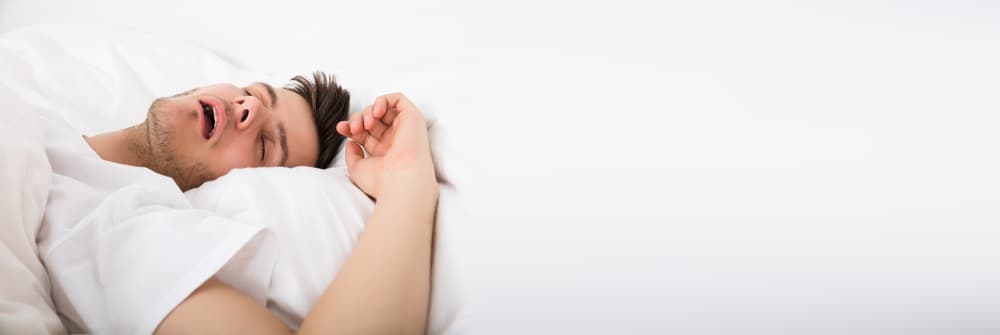What Is Sleep Apnoea?
Sleep apnoea is a condition related to breathing during sleep. Obstructive sleep apnoea, or OSA, is the most common type of the condition. It occurs when the soft tissue in the back of the throat relaxes during sleep, blocking the airway. Because the upper airway is obstructed during an episode of OSA, air cannot flow into or out of the lungs. The condition is characterised by excessive snoring, and sufferers wake up several times each night.
If left untreated, sleep apnoea can lead to high blood pressure and other serious illnesses. This is why it’s important to get checked for the condition. It is also a risk factor for heart attack, stroke, and type 2 diabetes.
What are the Symptoms of Sleep Apnoea?
Symptoms of sleep apnoea can range from mild to severe. People who suffer from sleep apnoea may snore loudly, or make choking or snorting noises during sleep. They may also wake up feeling sleepy and have difficulty concentrating in the morning. You can learn more about the symptoms of sleep apnoea in our earlier blog on the topic.
If you are concerned about symptoms of sleep apnoea, you should talk to your doctor. They can perform a test to find out the severity of your condition. They may suggest lifestyle changes, or surgery to correct the problem. If your condition is severe, you may be given a Continuous Positive Airway Pressure (CPAP) machine, or a mandibular advancement splint which enables your airway to remain open while asleep.
CPAP Machines for Treating Sleep Apnoea
CPAP therapy is usually the first line of treatment for obstructive sleep apnoea (OSA). It has been shown to improve sleep quality and reduce the risk of heart attack and stroke. However, CPAP machines can be expensive, cumbersome, and uncomfortable. Because they require a mask to be worn over the nose and mouth throughout the night, many people report difficulties in sleeping comfortably. They can also be noisy and disruptive, both for the wearer, and anyone else in the room. Due to these drawbacks, many people stop using their CPAP machines, which causes their sleep apnoea to return. Because so many people struggle to consistently wear their CPAP machines, we recommend mandibular splits (also known as bite plates) as an alternative treatment for OSA.
Mandibular Splints or Bite Plates for Sleep Apnoea
Due to the discomfort of CPAP machines, using oral appliances to treat OSA may be more effective for some patients. Indeed, bite plates are far more comfortable and less cumbersome than a CPAP machine. This means that people are more likely to keep using their plates long-term. A simple device, the splints are placed in the mouth and help to angle the jaw in such a way as to stop the collapse of soft tissue at the back of the throat. This greatly reduces the symptoms of OSA, both in terms of breathing ability and snoring. The split will allow a more restful sleep for the sufferer of OSA, in addition to minimising their snoring – so it’s beneficial to everyone in the household!
How Can We Help?
At the TMJ Centre Melbourne, we believe in providing treatment that is both comfortable and effective. This is why we prefer to treat OSA with bite plates and chiropractic solutions as opposed to CPAP machines. If you or a loved one suffers from OSA, please come in for a consultation! We will develop a comprehensive treatment plan to alleviate symptoms, leading to more restful sleep for the sufferer, and less disruption from snoring for everyone else! Additionally, should you require surgical intervention, we will collaborate with your other medical practitioners to develop a treatment plan that fully meets your needs.
For more information regarding our treatments, please have a look here.
To schedule an appointment, please call (03) 9417 4038, or get in touch here.
